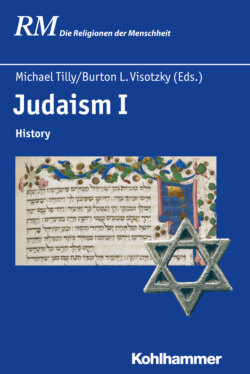Читать книгу Judaism I - Группа авторов - Страница 38
На сайте Литреса книга снята с продажи.
24 Judaism, Feminism, and Gender
ОглавлениеDr. Gwynn Kessler of Swarthmore College provides a literary history of feminist Judaism in the U.S., beginning in the early 1970s. During this time, the first American female rabbis were ordained. Response: A Contemporary Jewish Review (Summer, 1973) and The Jewish Woman: New Perspectives (1976), represent watersheds in feminist Jewish scholarship, incorporating sections on »History,« »Community,« »Life Cycle,« »Women and Jewish Law,« »Israel,« and »Jewish Texts.«
In Womanspirit Rising: A Feminist Reader in Religion (1979), Carol P. Christ and Judith Plaskow write, »The image of God as male was at once the most obvious and most subtle sexist influence in religion.« Throughout the 1980s, Jewish feminists developed theologies, rituals, examined women in halakhah, redeemed marginal figures from the Bible, confronted antisemitism in the larger women’s movement, and incorporated diverse feminist Jewish identities.
Scholarly books about Judaism, women, and gender published in the 1990s heralded the achievement of the goals of Jewish feminism—acknowledging women’s existence in, and contributions to Jewish history, literature, and culture. By the end of the decade, no field within Jewish Studies remained untouched.
During these years, men wrote scholarly monographs that built on and reflected tensions with Women’s Studies and feminist theories. The field increased focus on gender (as opposed to women) as a social construct. Women’s Studies and the developing Masculinity, Gay and Lesbian, Gender, and Sexuality Studies grappled with the »history of sexuality.«
Jewish Women in America: An Historical Encyclopedia (1997) contains eight-hundred biographies of individual Jewish women and 110 topical essays. In 1998, Nashim: A Journal of Jewish Women’s Studies & Gender Issues published its inaugural issue, displaying multi-disciplinary breadth. Nashim stands alongside Lilith magazine and Bridges: A Journal for Jewish Feminists and our Friends as anchors of Jewish feminist scholarship.
Concurrent with the growth in feminist Jewish scholarship, the 1990s witnessed an expansion of Jewish feminist organizing. At the beginning of the 21st century, women, among them women of color, »out« lesbian, gay, bisexual, and transgender Jews have been ordained as rabbis in all progressive denominations. Nevertheless, struggles for justice and equality persist.
